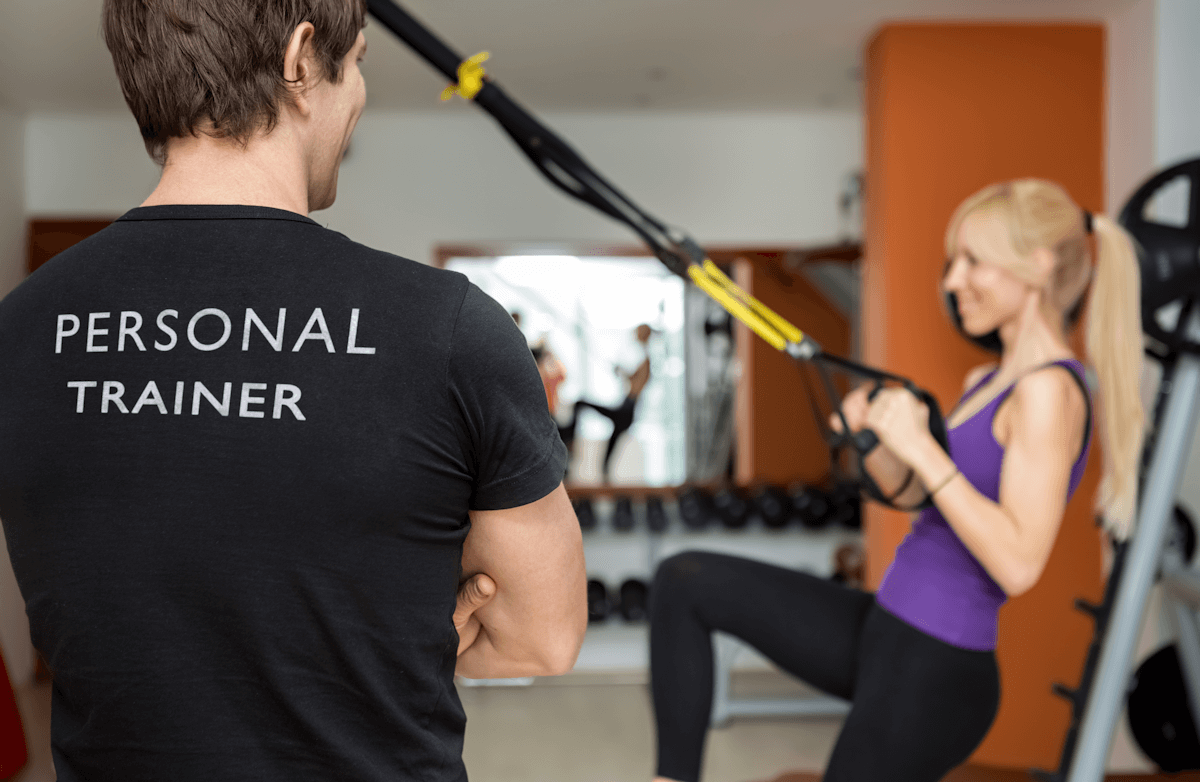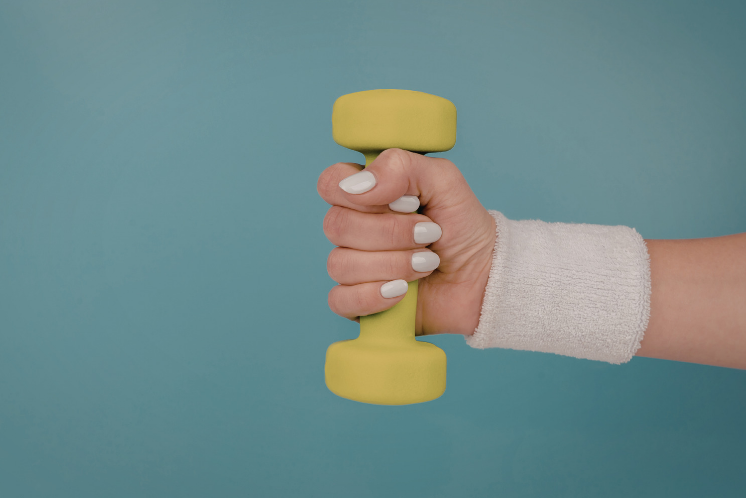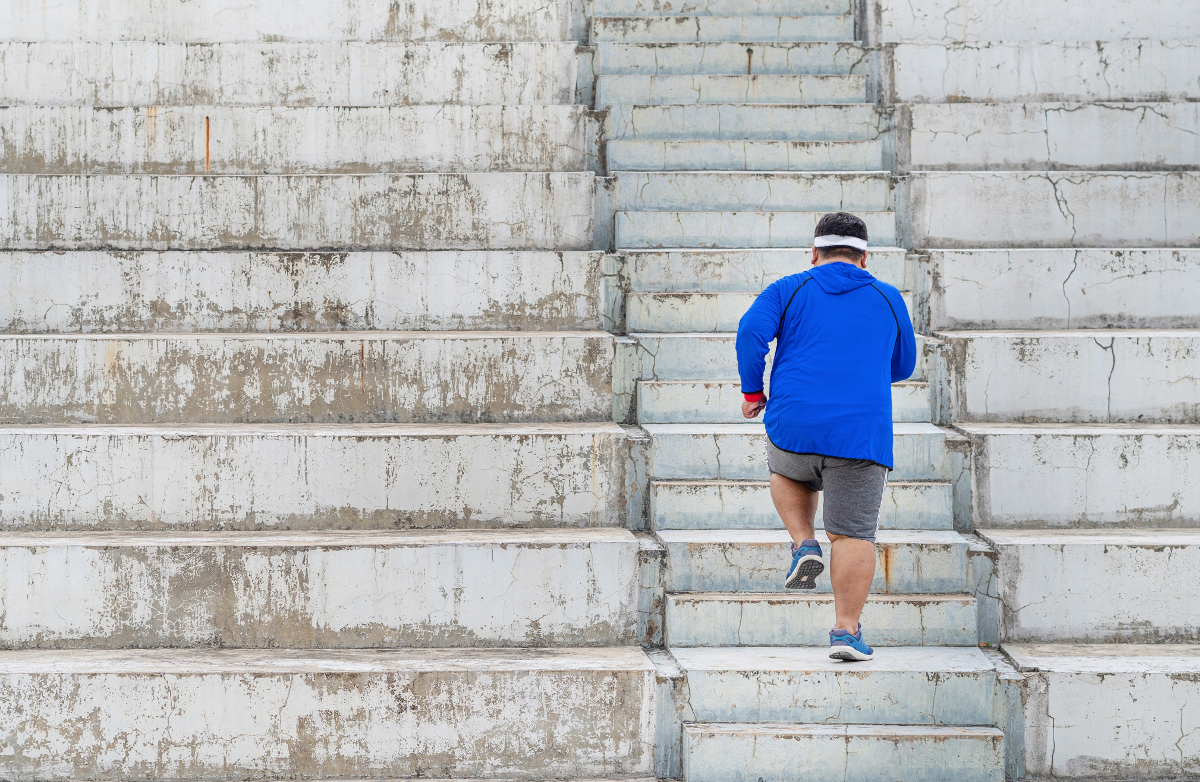Working out is a personal thing, after all. It involves your body, health and overall well-being. And when it's out there on the table (or the mat) for everyone to see, it's easy to feel exposed.
One might argue that you can always work out at home—it's accessible and comfortable, so why not? For some, this might not be the best bet. Maybe you don't have enough space or already spend so much time at home. Maybe you have a house full of countless distractions. Meanwhile, the great outdoors offer fresh air and space. Gyms and studios have in-person guidance, high-end equipment and social connections. Basically, working out in public expands the possibilities.
Unfortunately, worrying about people watching you stands in the way of you and these resources. It's one big roadblock. When you
Why Do You Think Everyone Is Watching?
Before you answer, "Because I can feel it!", hold that thought. Be honest with yourself: Have you actually caught every person
Reality check: There is probably a reason why you feel like people are watching. According to Mackenzie Gelina, a yoga instructor in upstate New York, and Kristin Marzullo, an ACE-certified personal trainer in New York, fear is likely to blame.
Perhaps it's the fear of feeling clueless or the fear of being weak. It could be the fear of what people are thinking. Sometimes, it's all of the above.
Let's tackle the first point. Feeling inexperienced is intimidating, whether you're at the gym or hitting the pavement. The same goes for entering a Pilates class for the first time ever. However, everything in life starts at square one, so why is feeling like a newbie so taboo?
There's also the fear of being weak. Like experience, strength is respected—especially in the fitness realm. Isn't that what we're all working toward, after all?
When asked why they think people are watching, many people voice fears of other people's judgments. Are they looking at my form? My inability? My body, my strength, the fact that I'm sweating buckets? Man, I probably look awkward.
If any of these feelings sound familiar, take a step back. Take the time to recognize the reasons behind your thoughts. It's the first step to getting rid of them, once and for all.
How to Get Over the Feeling Like Everyone is Watching
1.
Does the thought of publicly working out
Marzullo encourages breathing exercises to calm your nerves "[Try] crocodile breathing, a technique where you lay on the floor and utilize diaphragmatic breathing," she suggests. "Meditation tactics like this have been proven to reduce anxiety and increase overall happiness."
The concept of de-stressing before a de-stressing activity may seem ironic, but when you take time to check in with yourself before hitting the gym, you might realize that it isn't as nerve-wracking as you think.
2. Educate Yourself
Live in fear of feeling clueless? You can kick it to the curb by simply doing some research.
The internet is, as we all know, a powerful tool, and it can help answer any question you may have about performing different moves or what to expect in a workout class. If you're a visual learner, visit YouTube for step-by-step video demonstrations. Utilize Google to search for information about proper form and basic equipment.
Don't hesitate to talk to trainers and teachers, too. Many gyms have personal trainers on staff who are available to help you learn how to use machines or answer questions about the weight room. If you're someone who prefers a group fitness class setting, show up early to a scheduled class to ask the instructor any questions you might have before anyone else arrives. Don't hold anything back, and express your concerns or health conditions. A trainer that's worth working with will be happy to talk it through.
3. Try Modifications
Modifications are a game changer. They can target everything from fitness level to injuries, helping you to overcome the fear that you're incapable. Gelina encourages yoga students to use props, for example, even if they aren't beginners. A simple brick can instantly turn an uncomfortable move into something that feels good. "Take it slow and listen to what your body is saying," she advises, whether you're walking for the first time ever or branching out with a new strength-training move. From there, react by modifying accordingly.
During class, instructors often suggest modifications along the way. And if they don't? Ask! Again, this is another reason to communicate with your instructor beforehand. This will get your concerns on his or her radar and other people's judgments off yours.
4. View Yourself as a Work in Progress
While feeling inexperienced is uncomfortable, how you look at that inexperience matters more. Instead of seeing it as a spectacle for the public eye, view it as a sign of growth. You're challenging your body to something new and that's awesome.
When it comes to teaching yoga, Gelina is all about this concept. "I remind students that this is their practice and no one else's. Your body is not 'wrong' or 'right' for the way it moves. It'll improve in its own way."
Marzullo echoes a similar thought: "Everyone feels the pressure to perform perfectly in the gym, but you have to keep pushing in order [to get better]," she says. "Even as a trainer, I have days where my workouts feel weak."
Every single one of us is a work in progress, regardless of body type or strength.
5. Do What You Like
Staying fit isn't all about running laps and pumping iron. The realm of exercise stretches far and wide, so why limit yourself? By finding an activity that you love, the dread of people watching will take a back seat. By doing things that bring you joy—whether that's hiking or a Zumba class—you'll find yourself focusing more on the joy the activity brings than the opinions of others. Never forget that you always have options, so if the weight room or that boot camp class isn't working, expand your horizons and find something that you love so much, you don't care what you might look like to anyone else.
6. Bring a Buddy
From shopping to brunch, friends make everything better. Exercise is no different. In fact, Gelina thinks this is the best way to shake the feeling that everyone is watching. With a good friend by your side, it'll be hard to care if that person across the room is judging your squat. An experienced workout buddy can also double as inspiration if you're working out with someone more experienced. Not only can they teach you new exercises, but you'll likely be motivated by their passion.
Above all, you can support each other, whether or not you're at the same fitness level. Exercising together gives you a chance to bond over a challenging experience, and isn't that what friends are for?
7. Find a Mentor
If you're overwhelmed by cluelessness, find a mentor that you trust. He or she can guide you every step of the way, helping you forget about everyone's eyeballs and focus instead on learning about and embracing your new lifestyle.
Even if you're on the experienced side, don't shun the idea of a mentor. There's always space for improvement. Waving your ego good-bye will make room for more learning, growth and progress, and you might be surprised by what you learn from another person's journey to get fit.
Discovering the right person takes time, so it is important to be patient and keep your eyes open for opportunities to grow. Until then, think about what the type of mentor you want and don't be afraid to reach out in the gym, online or on the phone if you think a particular trainer might be a perfect fit for your needs.
8. Give Yourself a Reality Check
Most of us are in our own little worlds. Does anyone really have the time to pay attention to other people's workouts? Do you? Probably not.
"From what I've noticed working in a gym, no one is actually paying attention to you because they're too worried about making sure they don't look silly," explains Marzullo.
And if they are staring? Marzullo pegs this as a sign of admiration. "It usually means you're doing something they want to do. Feel flattered and rock your workout with confidence. They might actually come up and ask you for advice."
It isn't easy to shake the feeling that all eyes are on you. It takes time, patience and persistence. Yet, facing discomfort is the only way to move forward.
The more you worry about other people, the more your progress stalls. Exercise is about connecting with your body and no one else's. As Marzullo puts it, "You can't listen to what it's saying if you're concerned with what others are thinking."













